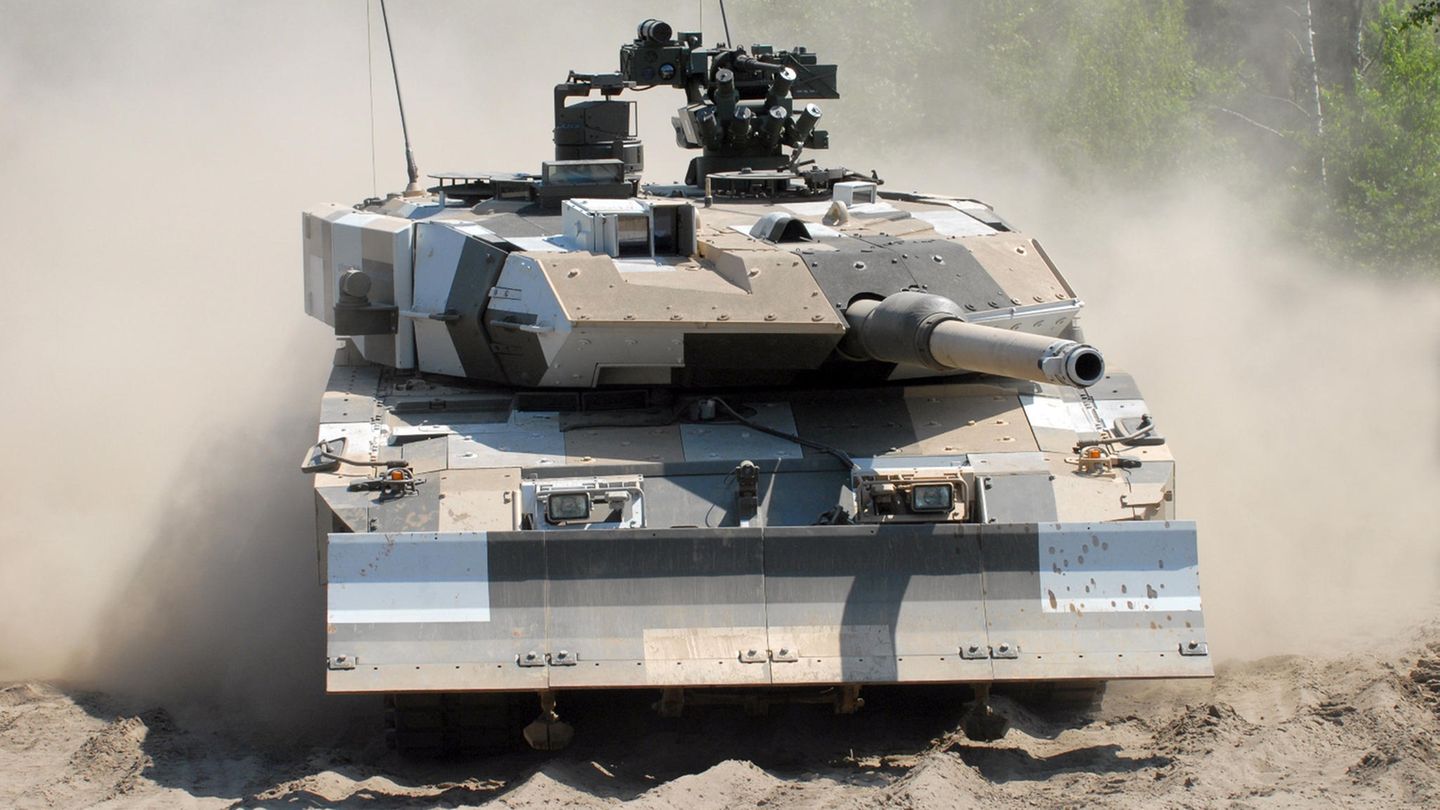The pressure on Prime Minister Olaf Scholz to approve arms exports remains high. The Chancellor does not alone decide on the export of armaments – at least not formally.
Is Olaf Scholz hesitating or is the head of government just extremely steadfast? In any case, on the issue of arms deliveries to Ukraine, the SPD man has not moved a bit from his position of delivering heavy equipment to the state attacked by Russia. Because of his attitude, the chancellor is facing a lot of opposition, even from within his own ranks. At least ex-SPD leader and ex-Vice Chancellor Sigmar Gabriel thinks that he is unfairly attacked in this way: “The decisions about who supplies which weapons are not made by the chancellor, in Germany they are made by the so-called Federal Security Council,” said he on Deutschlandfunk. “All the other parties are there too.”
Committee that decides on gun deals
That’s not entirely true, but pretty much. The Federal Security Council (BSR) is actually the body that decides on German arms deals. It has existed since 1955, but has had varying degrees of importance over the past few decades. The members of the Federal Security Council are made up of Federal Ministers, the Inspector General of the Federal Armed Forces and the Head of the Office of the Federal President. In addition to the government spokesman, the respective disarmament officer is also represented on the commission. This is currently Günter Sautter.
A total of nine government members come from the Federal Cabinet: Chancellor Scholz, Foreign Minister Annalena Baerbock (Greens), Head of the Chancellery Wolfgang Schmidt (SPD), Economics Minister Robert Habeck (Greens), Justice Minister Marco Buschmann (FDP), Finance Minister Christian Lindner (FDP), Defense Minister Christine Lambrecht ( SPD), Interior Minister Nancy Faeser (SPD) and Minister for Economic Cooperation, Svenja Schulze (SPD). The governing parties are what Sigmar Gabriel means by “all other parties”.
According to the rules of procedure, the BSR advises “security policy issues, particularly in all areas of defense as well as disarmament and arms control.” This type of advice also includes the approval of arms exports. In the past, the expanded group of ministers had also approved controversial exports such as armored reconnaissance vehicles and anti-tank grenades to Saudi Arabia and main battle tanks to Qatar. In 2020, goods worth 5.8 billion euros were sold abroad, half of which went to NATO countries or friendly states.
No easy solutions to arms exports
“For armaments exports, the following applies even more than usual: there are no simple solutions and no ‘black and white decisions’. Rather, it is worth taking a differentiated look at the exact circumstances,” says the annual report. With such vague formulations, many exports can be waved through but also blocked. In the discussion, a distinction is often made between defensive and offensive weapons, but this is irrelevant in practice.
“Attack and defense are tactical terms that say nothing about the means used. Despite its name, which suggests attack, an assault rifle can also be used to defend a position. And fire from anti-aircraft or anti-tank weapons is deadly from the point of view of the crew under fire attack”, writes about the V.
Although Chancellor Scholz spoke of a turning point at the beginning of Russia’s invasion of Ukraine, his government continues to refuse to carry out offensive or heavy equipment. In addition, the approved exports are often only made public with a delay, or there are discrepancies in communication.
For example, the head of government had to deliver weapons to Ukraine for the first time and even gave details. Almost three weeks later, 500 Strela anti-aircraft missiles arrived there, but originally there had been talk of 2,700. The Ministry of Defense remained silent on the case and referred to secrecy. According to the newspaper “Welt”, the Federal Security Council had reduced the number.
Is the Chancellery to blame?
Military expert Gustav Gressel believes the Chancellery and Ministry of Defense are responsible for such blockades. “The biggest obstacle is the Chancellery. … The second problem is the Ministry of Defence, where you’re looking for arguments to block things – in the spirit of the Chancellery,” Gressel told Focus magazine.
The Parliamentary Commissioner for the Armed Forces, Eva Högl, defends the hesitant attitude: “We can’t simply deliver everything that is somewhere in a company’s yard – for example the 50-year-old Marder infantry fighting vehicle,” as she recently said. However, she assumes that the federal government will make responsible decisions in the Federal Security Council and “explore everything that is possible”.
Sources: Lto.de, DPA, AFP, “”, “”, “”, BMWK, Olaf Scholz on Twitter
Source: Stern
David William is a talented author who has made a name for himself in the world of writing. He is a professional author who writes on a wide range of topics, from general interest to opinion news. David is currently working as a writer at 24 hours worlds where he brings his unique perspective and in-depth research to his articles, making them both informative and engaging.




